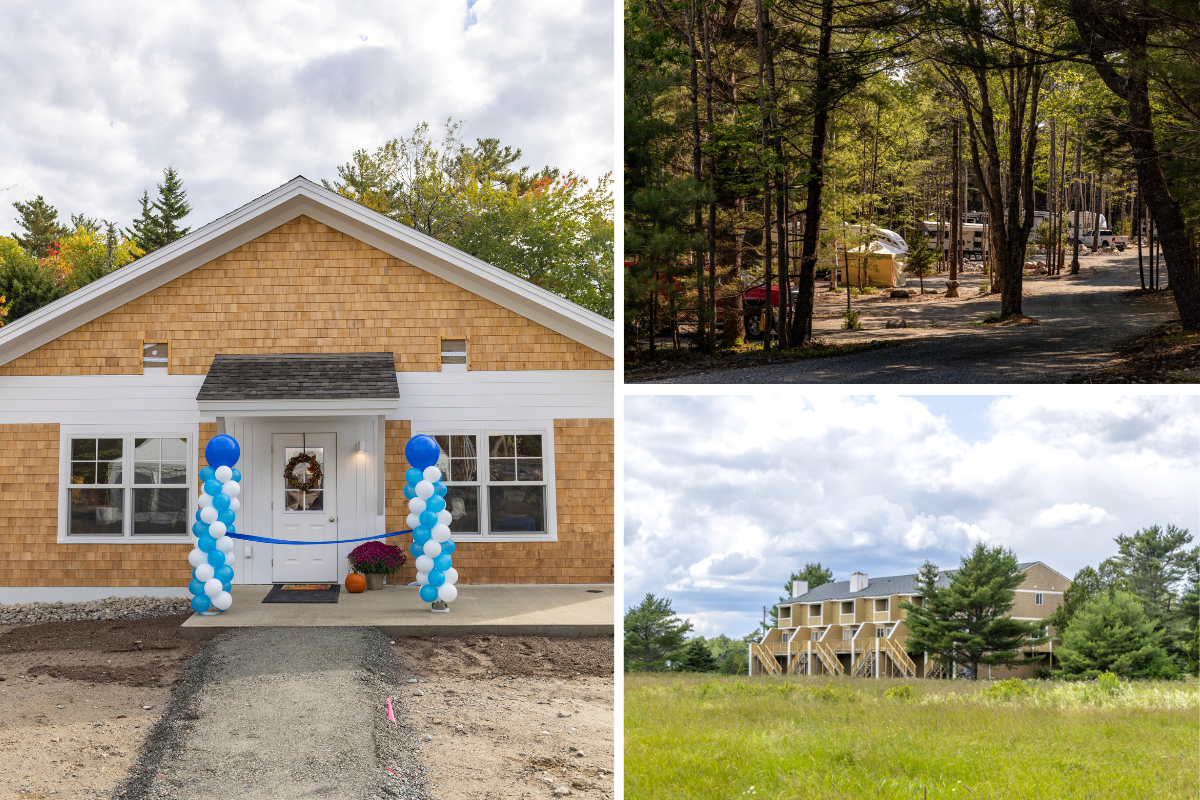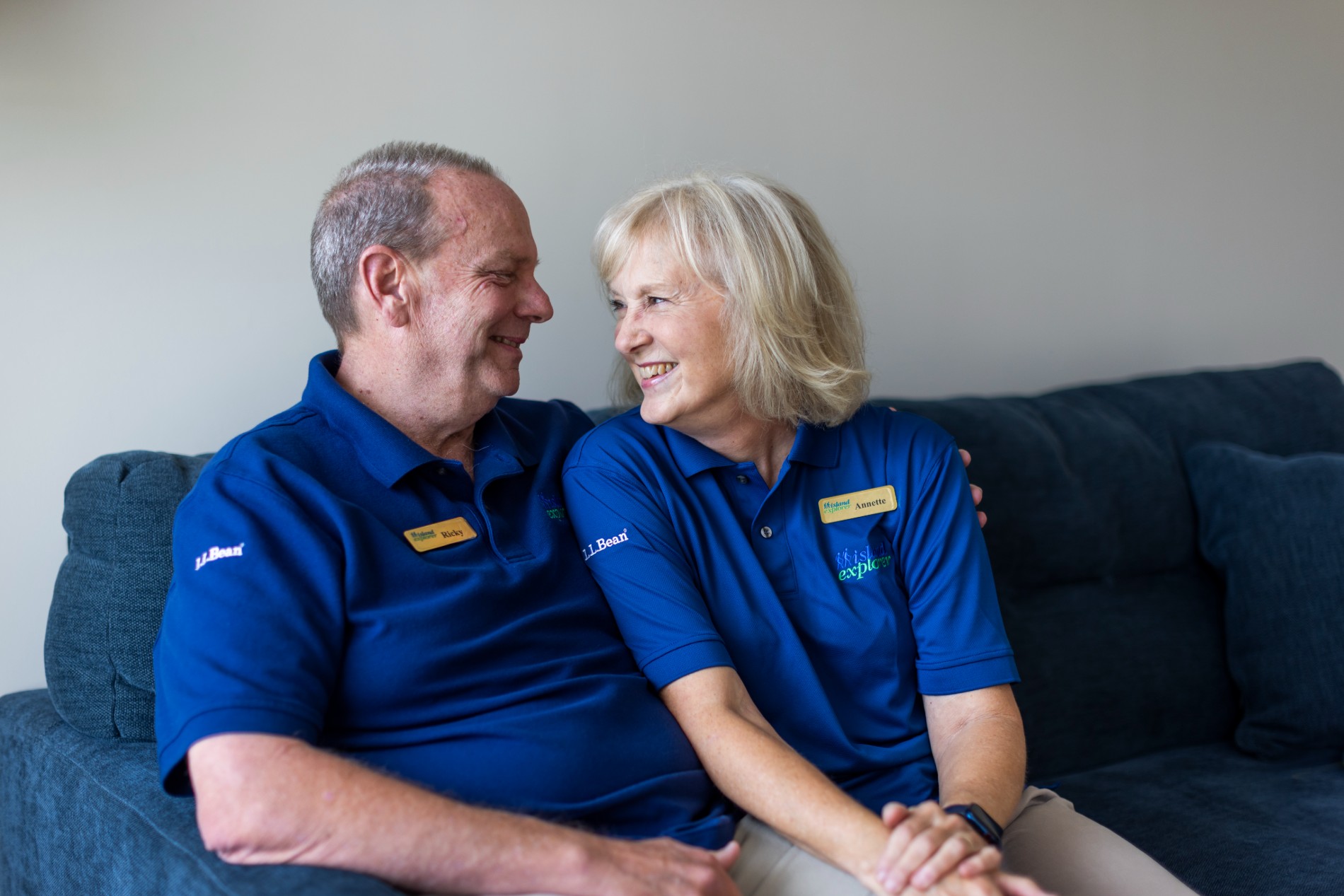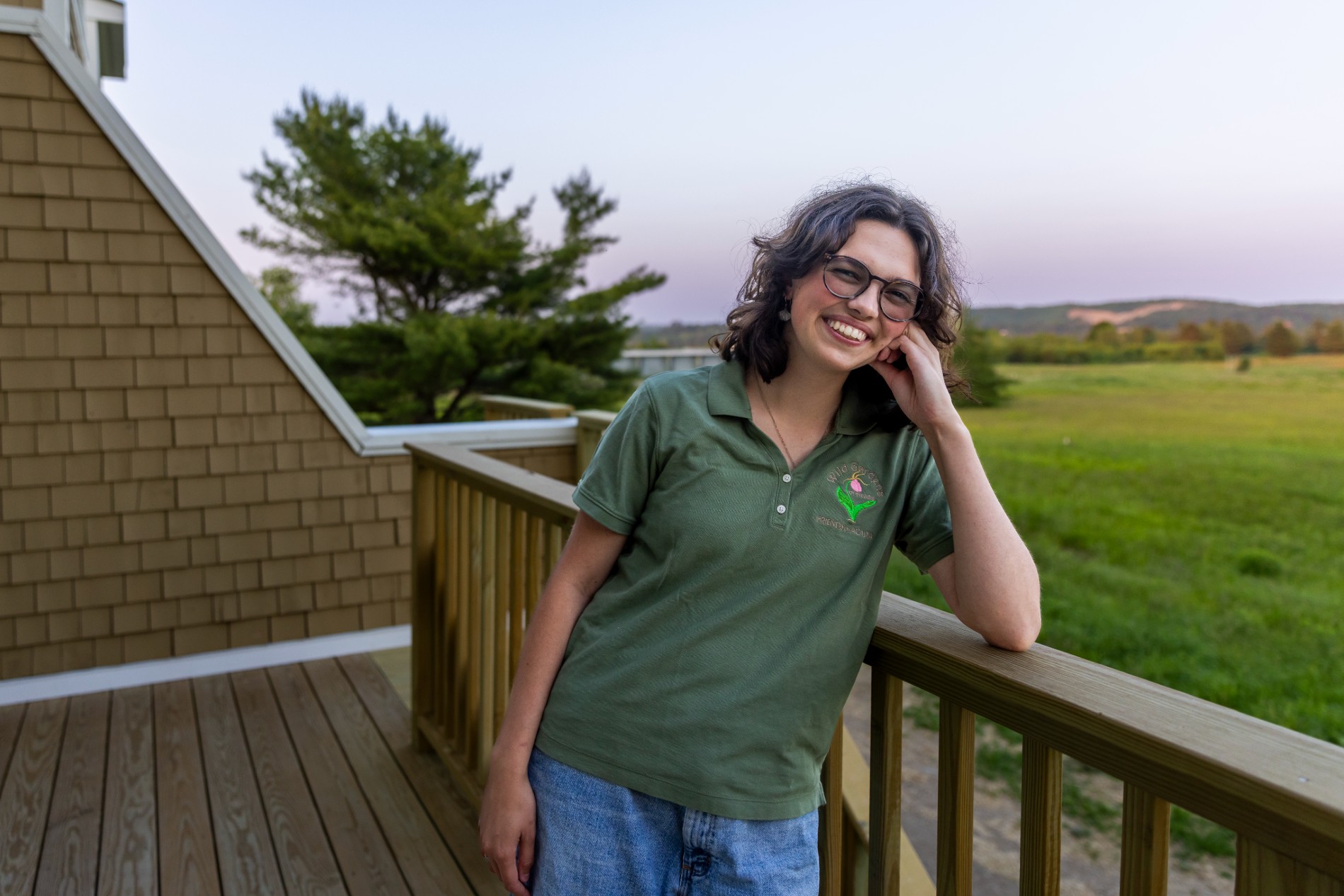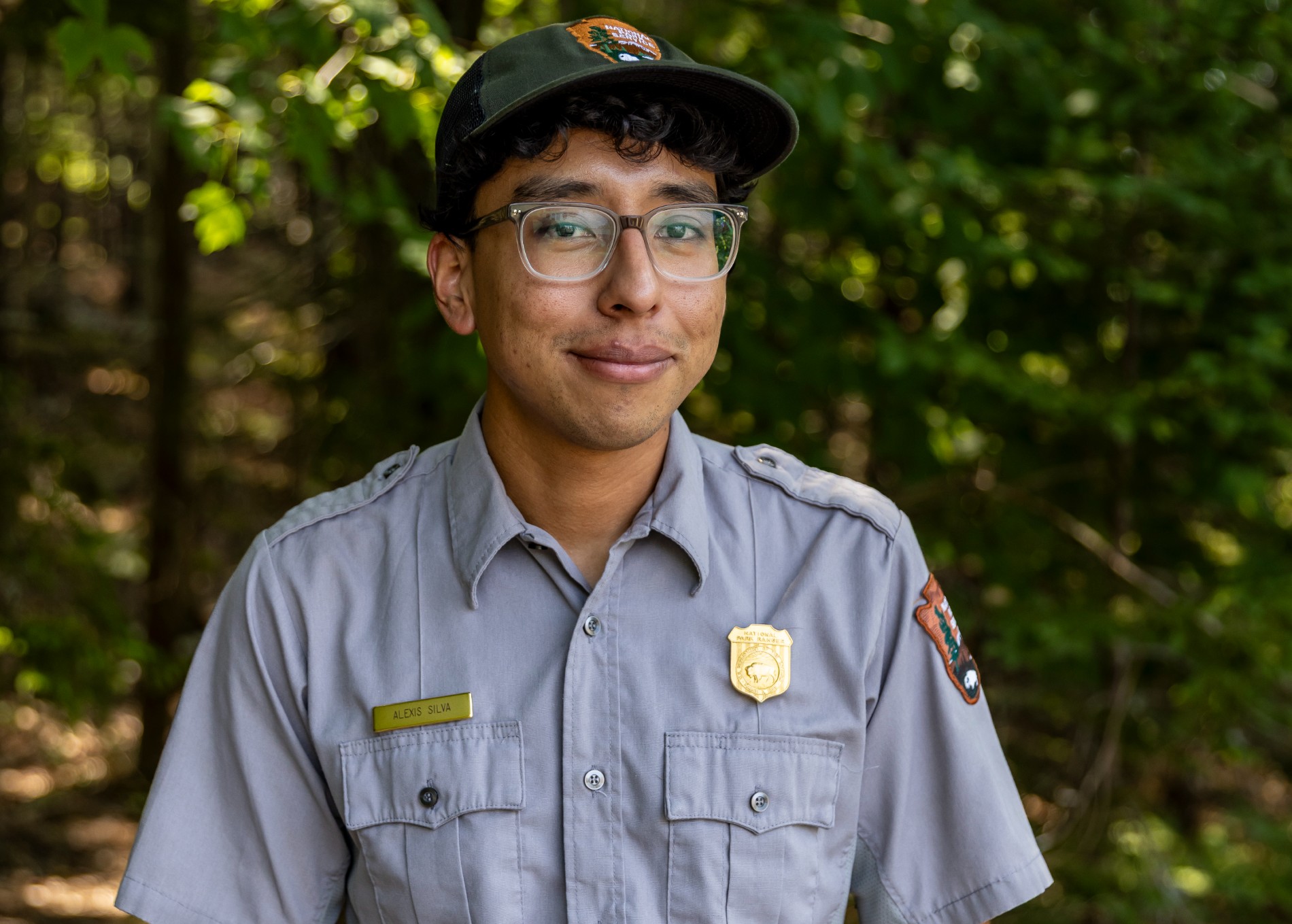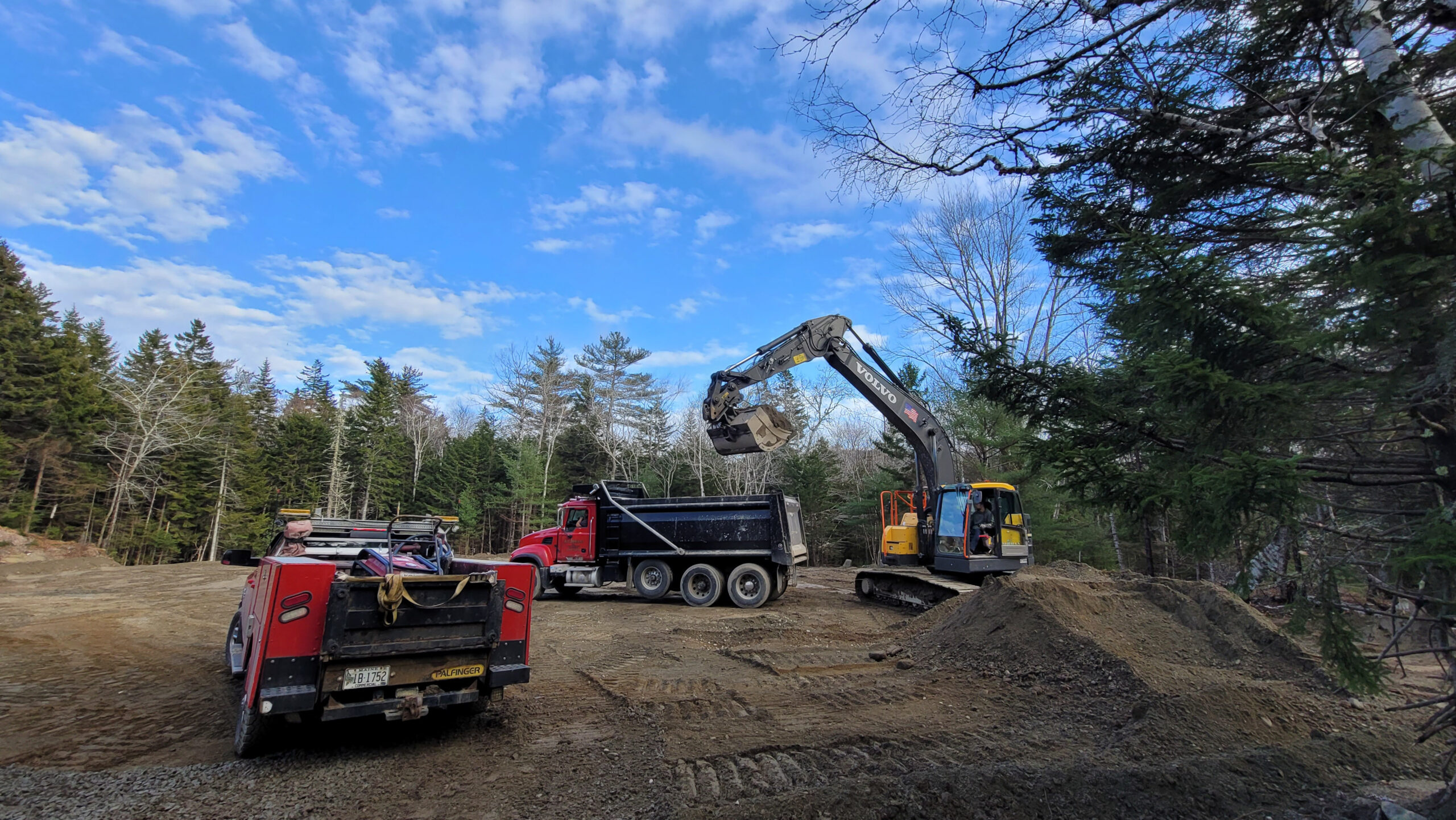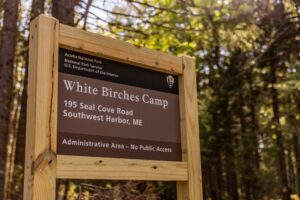
Preventative Search and Rescue (PSAR) Ranger Emily Franco (Rhiannon Johnston/Friends of Acadia)
If you need help while in the park, it may be Emily Franco you see coming to your rescue. But an important part of her job, she said, is helping prevent those accidents from happening in the first place.
“My teammates and I respond to emergency medical and search and rescue calls in the park, but more importantly, we try to prevent those situations by getting out on trails and carriage roads, making contact with visitors, and helping them identify and avoid hazards,” Emily said. “We want everyone to have a great time in Acadia, whether they’re here from Bar Harbor or Bangkok, and twisting an ankle on wet granite can really put a
damper on your weekend!”
Emily worked previous summers as a PSAR and education ranger in Denali, Zion, Yosemite, Death Valley, and Theodore Roosevelt National Parks. “There are a lot of big, beautiful parks out West, but living and working right on the ocean this summer has been a thrilling experience,” she said.
“Acadia’s landscape and community have already begun to feel like home to me, and I’ve truly never been anywhere like it.”
This winter, before coming to Acadia, Emily spent the offseason working in an urgent care center in Reno, Nevada. “I would not have been able to work in Acadia this summer if housing had not been available. Moving cross-country seasonally for work with the National Park Service, housing is a tremendous source of stress,” she said. “Even when housing is guaranteed, there are so many unknowns. How old will the housing be? Are there mice? Does the heat work? How many people will be sharing a bathroom? Do I need to bring all of my own pots, pans, and even curtains, or is it move-in ready? Often, none of these questions are answered until you arrive, and that’s at the end of a multi-day, multi-state road trip with all of your belongings in your car!
Moving into Dane Farm has been the best housing experience of my NPS career. The house is clean, bright, and welcoming. It feels like it was designed with care.” One of the highlights, she said, is staff staying at Dane Farm have “tons of space to cook and eat together. It feels like a real community is emerging.”
 Join
Join Donate
Donate Acadia National Park
Acadia National Park
